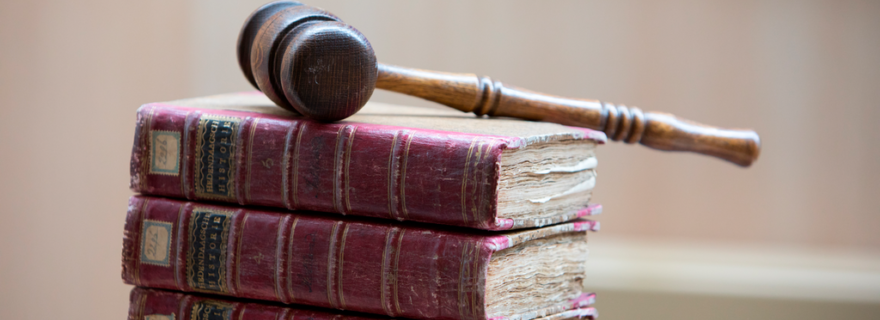Will the real you please stand up!
Everywhere collective identities are struggling with other identities. They are mere substitutes, however, for the personal identity we are born with – whose development is justly protected as a human right and is the antidote to the crises facing us.
When a good few years ago Maxima, before she became Queen of the Netherlands, stated publicly that she had searched for, but not found, the ‘Dutch identity’, it caused a lot of heated discussion. Since then this discussion has continued and it has turned out that it is not limited to the Netherlands: nowadays it hits a sensitive nerve with people all over the world. With the election of Trump in the US, the rising popularity of populism and protective nationalism in almost every country, we can see how we are struggling on a global scale with our sense of identity. Calls are now being made to protect it, to distinguish it from other identities. And what happens if we lose our identity? Can we then search for it and reclaim it? To deal properly with this issue, we must first get a clear picture of what we are actually talking about.
A dualistic identity
I think the sort of identity that Maxima was talking about and which is also central to the debates in the media, is what I would like to call a dualistic identity. It is collective and exclusive in nature: it tells people which group of similar thinking people they belong to and which easily identifiable groups they definitely do not want to belong to. It even owes its very existence to a constant confrontation with the other identities and refutation of their ideas. Today we witness all around us how people with a dualistic identity see enemies everywhere and welcome polarisation.
A personal identity
There is also good news: fortunately a dualistic identity does not express something very deep. It is only ego-driven. People clinging to it are often unaware of the fact that in them there has always existed and still exists a completely different kind of identity, a very individual, authentic and ever-evolving one. An identity that everyone is born with it, potentially, and no one but ourselves can transform into an actuality.
The American archetypal psychologist James Hillman has written interesting books about this kind of identity growth: The Soul’s Code and The Force of Character. In them he shows that the core of our character, the ‘acorn’, is present from the day we are born, but often takes a lifetime to develop and reveal itself fully to the outside world. It is an individual challenge that is offered to everyone and expresses something far deeper than ego.
Open, cooperative and connected
Hans Andersen’s story of the Ugly Duckling beautifully illustrates the development of the personal identity. As the story shows, this development is not always easy, but gradually reveals who we actually are, the authentic person living inside, the unique individual who is unlike anybody else. A personal identity is inclusive and cooperative, open to others and the world. However individual in nature this identity might be, paradoxically it does not feel separated from the world: it feels very much connected to the larger whole – the nonhuman realm which stretches out beyond all human groups.
Recognised as a human right
It is telling that the Declaration of Human Rights (Art. 22 and 29) only mentions the right to develop a personality – a personal identity. It is an important recognition of the fact that we all have unique individual qualities that must be treasured and given the freedom to develop. There is a lot of wisdom in this protection: unique beings by definition deserve our respect. It also makes sense in relation to other human rights, like the freedom of expression (or speech). We can only trust people with well-developed personal identities with the freedom of expression.
In this respect it is understandable that the dualistic identity is not recognised as a human right. People clinging to this kind of identity, focused on a struggle with others whom they have reduced to a mere category, do not have the mental space to simultaneously respect other people’s rights or freedom.
(Getting rid of) substitute identities
When we inspect the two types of identity a bit closer, we can see that the dualistic identity really is a substitute identity. When we have lost touch with our authentic, evolving personal identity, however, we still are vaguely aware that there is something important lacking in our life. That is when collectives, from soccer teams to (populist) political parties to even whole nations, can easily step in to fill the gap with their dualistic identities – which are always static blueprints, resisting any change.
And once again there is some good news: people today are increasingly becoming aware that in the present political ‘climate’ – where attention has shifted again to tightening border security and potential enemies instead of to the far more comprehensive issue of ‘climate change’ – this clinging to static, collective identities is not only giving people a false sense of security, but can even become destructive on a global scale. The sheer worldwide sense of shame and fierce protests surrounding the election of Trump must be seen in this light.
In a sense, we should be glad that Queen Maxima was unable to find the Dutch identity. This can truly be seen as a message of hope. The real antidote to the crises facing us today is that we collectively start cherishing the development of our diverse personal identities.



1 Comment
Dag Wim, weer goed geschreven. Identity and personality blijven lastige onderwerpen, wat mij betreft. Nationaal gezien wordt veel bepaald door cultuur en historie, denk ik. Erover praten is misschien prettiger. Laten we dat maar eens doen. Hartelijke groet, Reino
Add a comment